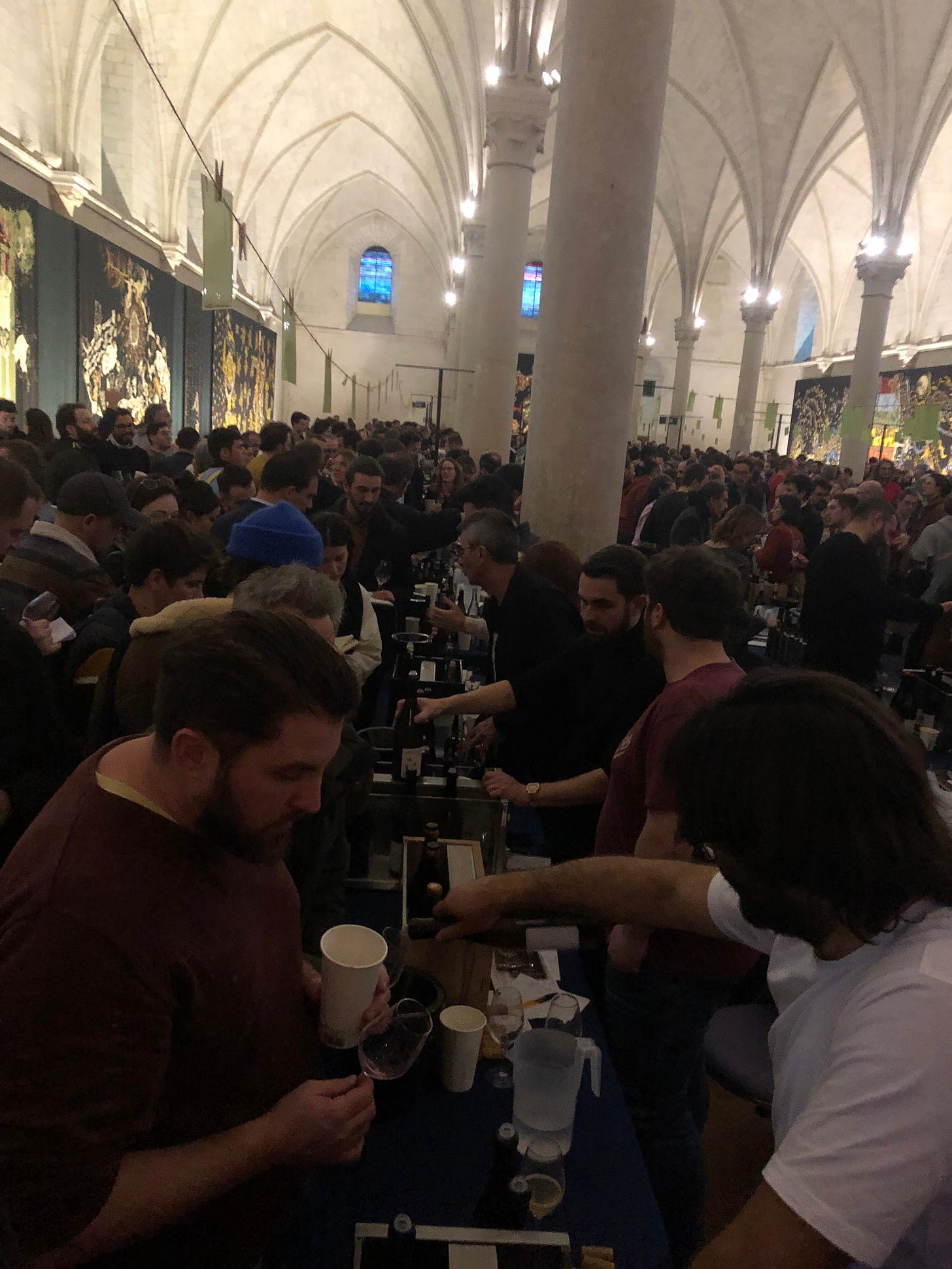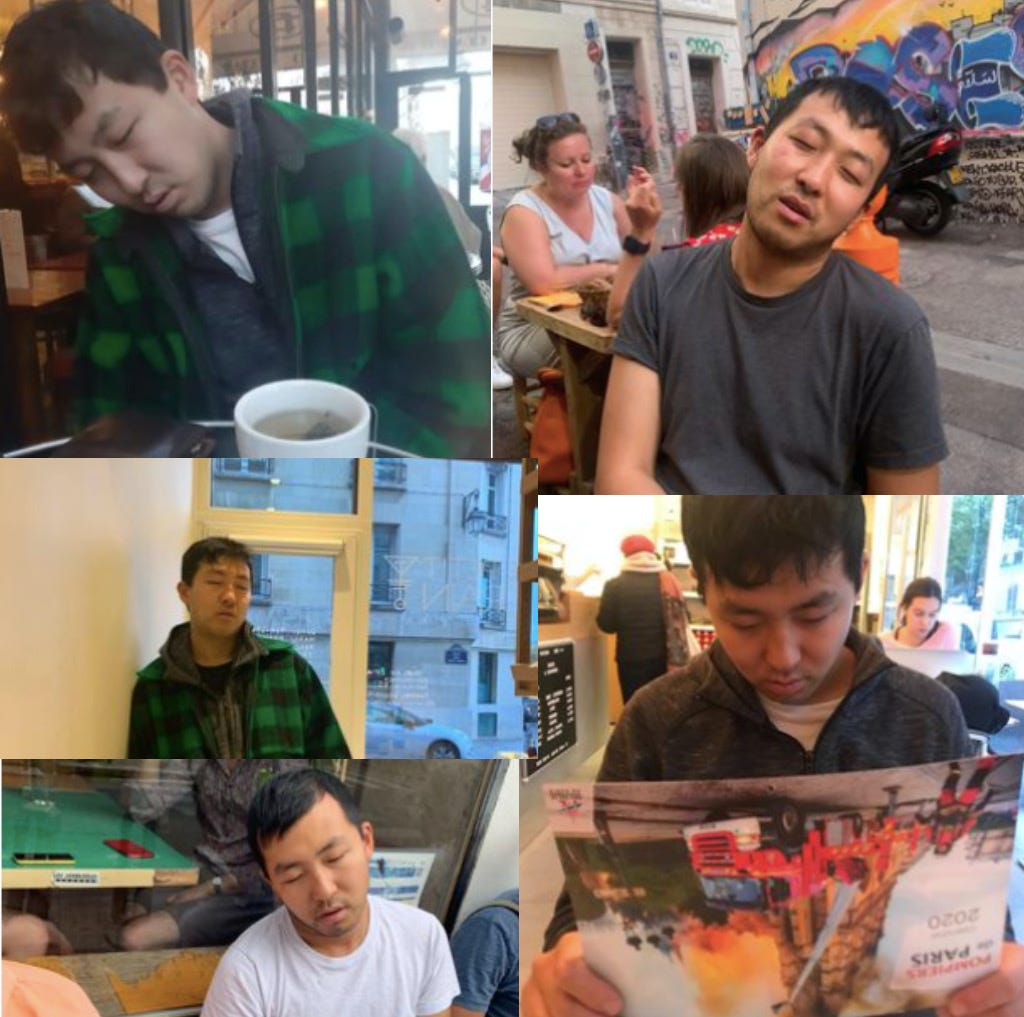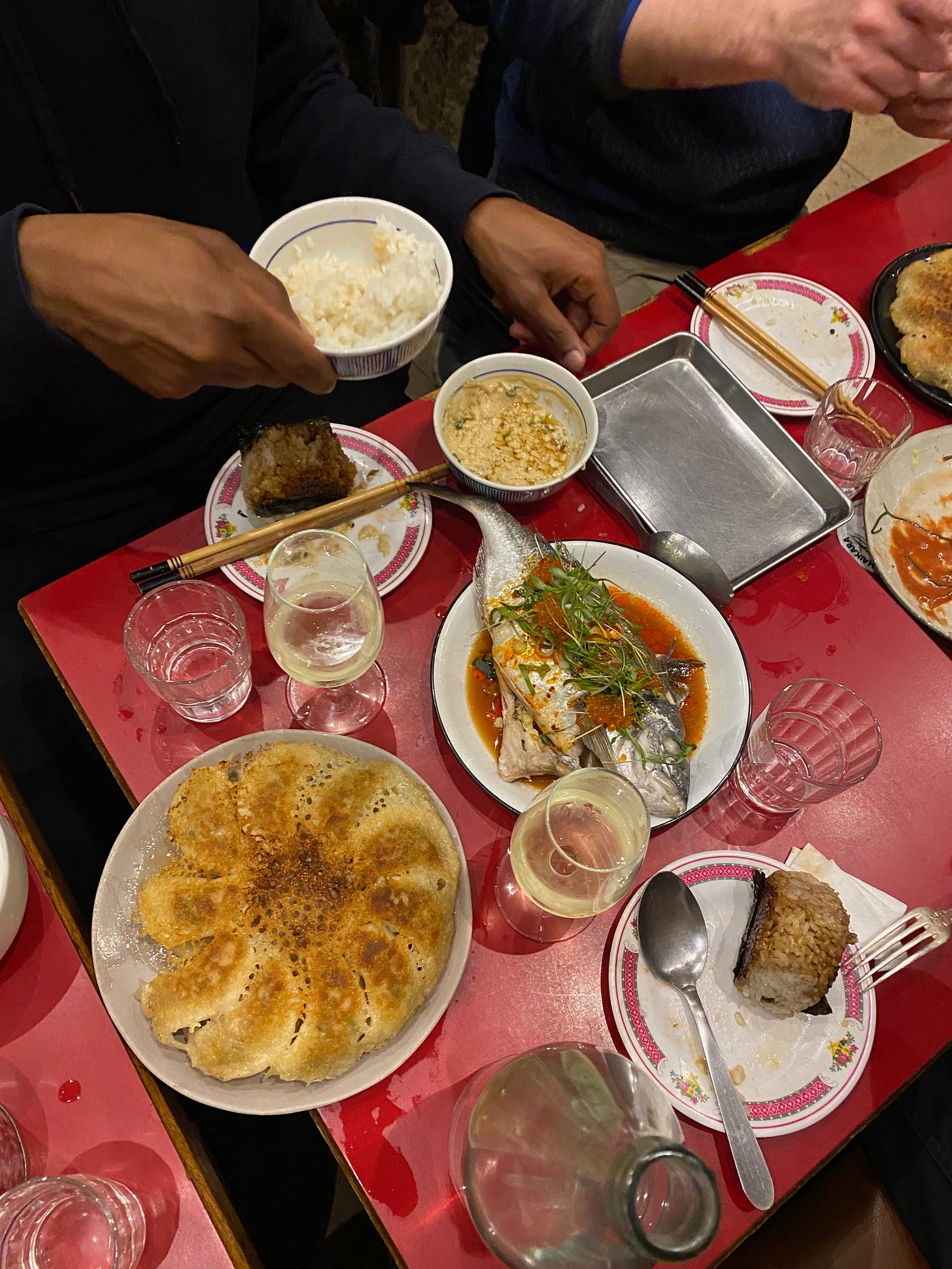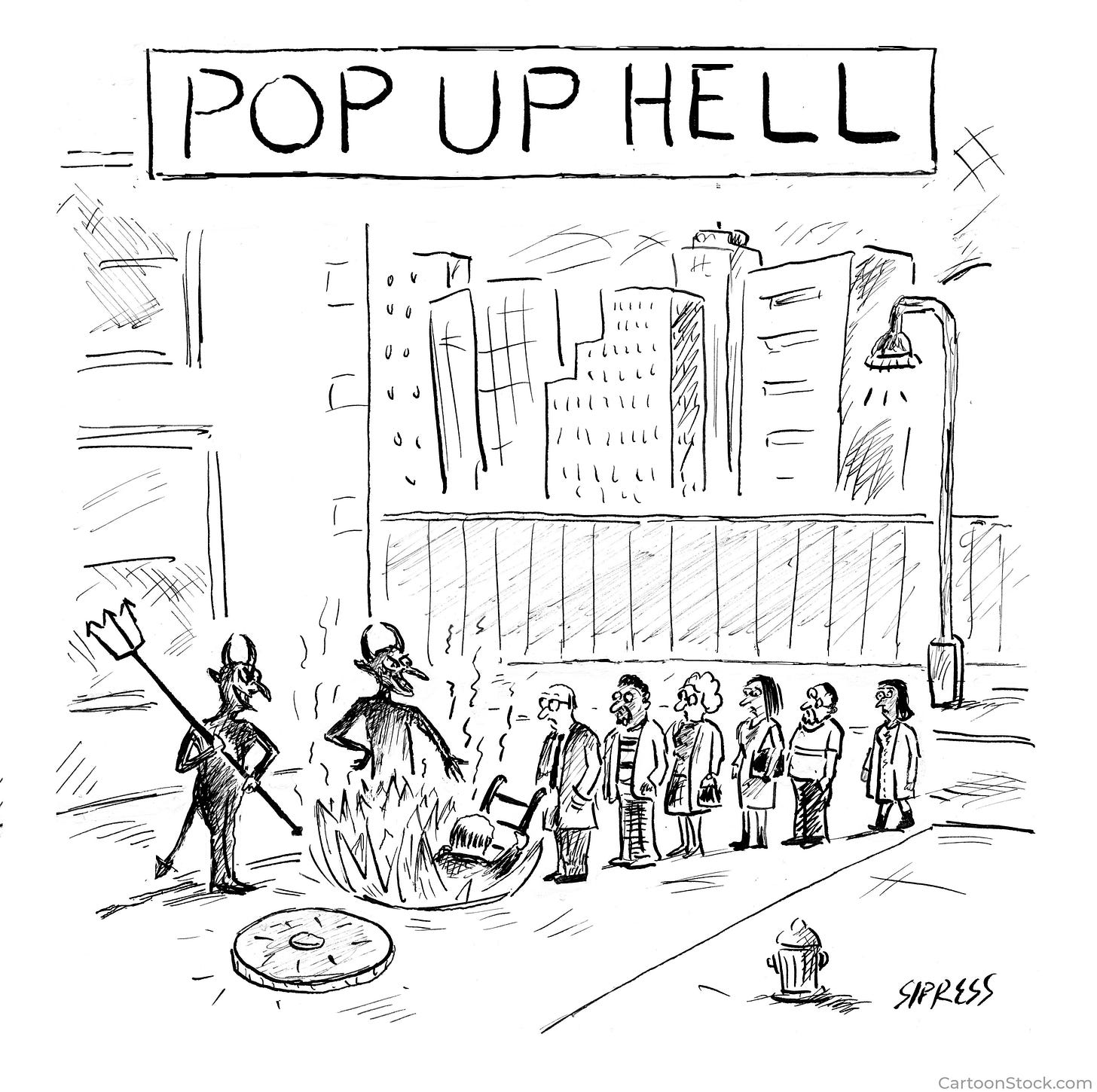Fire and forget
Look what popped up: text generated a few neurons short of a mental load
THREE APOLOGIES! First, for the middle finger in the picture above, which many people, including my mother-in-law – especially my mother-in-law! – will find offensive. Sorry, Popo. Second, for this post not being about, despite last week’s Hexagon poll results, “the time a few months back that I had to tell a packed room of angry factory workers why 108 of them were about to lose their jobs.” I was fully prepared to describe this event, but as I was assembling my recollections, a picture formed in my mind of a sheet of paper on a table in a conference room on the main floor of a chain hotel just off an autoroute, and from that sheet the entire scene unfolded like a page in a children’s popup book; and I saw myself among its many complicated plications, standing next to the conference-room table, one of six slack-faced characters lining the wall, the other five businessmen in wrinkled business suits, each flattened to differing degrees by fatigue and stress – it was 7 am – as we listened to a cartoonishly fit, massively tattooed man in full body armour describe how he and his men – a dozen of whom, dressed in riot gear, were lined against the opposite wall – would, in just under two hours, be positioned in offices on the factory’s first and second floors, in bushes around the perimeter, and in black SUVs at the front, back and side entrances.
“If things turn violent,” he said, “and they probably will, as these people are angry, don’t try to engage, just follow us out the door to the extraction point. If the front gate is blocked, we will walk single file, right hands on right shoulders, through the building to the south exit. If that is blocked, we will re-enter and cross the ground floor, exit through the back, cut through a second building, and exit its north end, where cars will be ready to take us back here, or if necessary, directly to the airstrip.”
The room had no windows. It was hidden behind a stand of vending machines in the back corner of the hotel restaurant where, a few minutes earlier, I had eaten a buffet breakfast with four of the slack-faced businessmen. A few minutes before that I had been up in my room looking over my notes, trying to memorise vocabulary, most of it terms I didn’t understand locked within acronyms I had never seen before: RPS (risques psychosociaux); ERP (enterprise resource planning); HCM (human capital management); PLM (product lifecycle management). BE. AOA. FSE. CLC.
I had been told that I would be speaking to the assembled factory workers from a prepared text, but no text was ever prepared. “It will be fine,” one of the suits said. “We’ll keep things simple.”
How, you ask, did I end up in the “A-Team” episode of The Office? Excellent question. “Have you been in situations like this before?” one of the men at breakfast, an Italian in sales, asked. “Or in a war zone?” I explained that when I was a journalist, I mainly covered contemporary art, cinema, food, and fashion, and that the closest I’d been to physical danger was in the standing-room-only media pits of catwalk shows in the 1990s.
It was raining. The dinner the night before had been terrible. The breakfast that morning, worse. I was wearing my most presentable outfit: a camel-coloured wool turtleneck worthy of Steve Jobs; an off-white pair of Levi’s 511s; and a pinstriped suit jacket a friend in costume and wardrobe had given me 15 years before. The jacket’s shoulders were shiny. The turtleneck had two moth holes. The Levi’s had a stain on the left thigh, which, throughout the day, I kept hidden behind a backpack – my son’s, borrowed for the trip.
SRM. KPI. SCM. SKU. CSR. ROI. ROE. ROA. SOL.
I had slept poorly, kept largely conscious through the night by the dawning realisation of the reality slowly moving towards me, which, now, at the moment of the paper on the table in the room, was surging forward at a frightening pace.
“The workers, they’re ready for us,” someone said. “They know what’s coming.” The man who said this had a rough, hoarse voice. The men on the opposite wall cracked their knuckles and fingered their billy clubs.
It was precisely then that someone from HR returned my attention to the piece of paper on the table. “C’est un NDA,” he said. A nondisclosure agreement. An acronym I actually knew. Why do the French call it an NDA instead of an AND – un accord de non divulgation – I asked myself, as I patted my pockets for a pen. The man from HR gave me his. I signed the piece of paper on the table. Which means I won’t be describing anything else that happened in Lisieux, on the thirteenth of October, from this point, or, rather, that point, forward.
This does not mean I will therefore be writing about the roundly rejected second option in last week’s Hexagon poll, my weekend-long wine-research road trip to La Dive Bouteille in Saumur, the world’s largest annual natural wine exposition, and the almost-as-big Greniers Saint Jean Salon des Vins Naturel in Angers.
Only 8% of you expressed interest in going down that road. So not a word then here about carbonic maceration or biodynamics or the more than 200 winemakers we met, the grapes they grow, the glasses they poured, the mouthfuls of white, red, rosé, and orange wines from France, Italy, Spain, Greece, Germany, Austria, Slovenia, Serbia, Georgia, Hungary, Poland, Slovakia, Czechia, England, Denmark, and America that we swirled and spat or, later in the day, gratefully swallowed. Not a word. Except these, from François Rabelais, who, in 1552 or so, just before he retired from the curacy and went to Paris to die, wrote The Fifth and Last Book of the Heroic Deeds and Sayings of Good Pantagruel, which included this poem from whence Saumur’s La Dive Bouteille took its name:
Back to the middle finger, aka digitus impudicus, which, coincidentally, Rabelais, in the second book – The Very Horrific Life of Great Gargantua, Father of Pantagruel – gives an early description of its usage:
Panurge, without saying a word, raised his hands and made this sign: with his left hand he joined the nail of the index finger to the nail of the thumb, making a loop in the middle; then he squeezed all the fingers of his right hand into his fist, except the index finger, which he thrust repeatedly in and out of the loop composed of the two above-mentioned fingers of the left hand.
This occurs during a scholarly debate argued by means of obscene gestures between Pantagruel’s friend Panurge and the English pedant Thaumaste, who, after Panurge’s digital rebuttal:
with great toil and vexation of spirit, rose up, but in rising let out a great baker's fart, for the bran came after, and pissing withal very strong vinegar, stunk like all the devils in hell. The company began to stop their noses; for he had conskited himself with mere anguish and perplexity. Then lifted he up his right hand, clunching it in such sort that he brought the ends of all his fingers to meet together, and his left hand he laid flat upon his breast. Whereat Panurge drew out his long codpiece with his tuff, and stretched it forth a cubit and a half, holding it in the air with his right hand, and with his left took out his orange, and, casting it up into the air seven times, at the eighth he hid it in the fist of his right hand, holding it steadily up on high, and then began to shake his fair codpiece, showing it to Thaumast. After that, Thaumast began to puff up his two cheeks like a player on a bagpipe, and blew as if he had been to puff up a pig's bladder. Whereupon Panurge put one finger of his left hand in his nockandrow, by some called St. Patrick's hole, and with his mouth sucked in the air, in such a manner as when one eats oysters in the shell, or when we sup up our broth.
“I HAVE, I am aware, told this story in a very rambling way so that it may be difficult for anyone to find their path through what may be a sort of maze.” ― Ford Madox Ford, The Good Soldier
The man giving the rigid digit in the picture at the top of this page has appeared in past posts. He is Hanzhou Piao: China-born, Tokyo-raised, a Vancouverite who’s worked in étoilé kitchens across Asia, North America, and Europe, best known for his weekly dumpling deliveries, gargantuesque appetite, and predilection for narcoleptic kips.
His🖕was snapped near the end of shift at his Paris pop-up a few nights ago. A gesture no doubt playfully intended, meant as a joke, but aggressive nonetheless, and I can see how it may offend certain viewers (sorry again, Popo). That said, I find the shot’s date-stamped snappiness deeply satisfying. I especially like its oddly Cezannian proportions and symmetries, the giant egg, the giant finger, the tilted bowl, the weird splattering at the top, the soy sauce in the absolute centre, the movement forward from the ceiling lights and the wall arrow, the plate of grilled onigiri beneath the left elbow, the two, thick-rinded cedrates at the crotch.
In the old world order pictures were said to be worth a thousand words. Nowadays they’re not worth the carbon dioxide – 1,55 grams each – required to post them. This one, however, of HP giving me, you and the world the finger, on a night he also gave us generous portions of puntarelle with caper leaf pistou and trout roe; mushroom chawanmushi; barba di frate with soy, tofu, ginger and bergamot; Japanese-style smashed topinambour salad with hard-boiled egg, cucumber, and katsuobushi; dozens of gyoza; and a beautifully steamed sea bream with ponzu sauce, cébette and coriander, merits a couple of handfuls.
Those above suffice. I want to go somewhere else now. Having been given that initial text as prompt, I will now produce text that continues the prompt through a process of generative pre-training of a language model on a diverse corpus of unlabelled text, followed by discriminative fine-tuning on each specific task.
Words, endless words I've said to serve the moment – now it makes me proud to tell the truth. – Aeschylus
Most talk is bot these days. Words still penned by people gasp and flop about like dying fish on the bottom of a boat. This I think (is) because even human-generated words rarely escape the machines in which they circulate and spawn. This I think (is) because zombie-ant fungus has taken control of my mind. This I think (is) because whole castles have disappeared from my memory, whole cities that I will never visit again, and, like the narrator in The Good Soldier, which I am reading every night for all of three minutes before I drop off, I have forgotten the aspect of many things, but I shall never forget the aspect of that windowless conference room in the Hôtel Mercure Lisieux Normandie, nor the mien of the men lining its walls; les mots cachés dans les acronymes; the billy clubs, the zip ties, the pepper spray; or, on that Wednesday evening in Paris, in an Izakaya on rue Folie-Méricourt, the plates presented; the silky sauces; the good bottles of wine; the good conversations with good friends; the rediscovery of caricatures of those good friends, scratched years before onto the room’s pillars and walls, back when the space was a cave à vin infamous for defying police closures, spilling clientele onto the street, and allegedly bondaging them to hooks screwed into the ceiling.
Have you tried GPT-3.5? I have. Here, however, is a real thought: the manufacture of the laptop I am writing this with required a Ford Ranger pickup worth of dirt to be dug up and mined, and enough litres of water to fill 100 7-seater hot tubs. Just learning this, looking it up, calculating it anew, consumed enough energy to soft boil an egg. And so? And so. Food. Food, good food, still requires minds and hands. Fast food, sure. SpaceX engineers have built a touchless robot that can make a pizza every 45 seconds. But even in today’s rigged and gigged economy, even though I haven’t had a permanent job since 1991, even though I eke out on short-term contracts and freelance work, they can’t force me to deliver it.
Caitlin Corcoran’s photos above were snapped on “Wet My Whistle Wednesday” last week – the first day of Fèvrier mouillè. The restaurant’s regular chef, Sho Miyashita, was off doing a pop-up at a fancy ski resort in Chamonix, so Hanzhou Piao pop-upped in his place. A pop-up because of a pop-up – the restaurant equivalent of Whac-A-Mole.
Used to be only toasters, fly balls, and kids’ books popped up; then it was those little windows of Russian porn that suddenly appeared in upper-right corners of streaming sites. Now it’s everything everywhere all at once. Used to be, too, that we did shit, now shit does us and we happily stick our selfieing faces in it, mugging for our phones like Cheshire cats. These experiences are called Experiences. Sometimes they are Curated. Sometimes they are Extraordinary. Sometimes they’re just stop gaps, because the kitchen can’t find competent staff. Or any staff. And sometimes they’re because the kitchen needs a break. Or because the chefs are playing Whac-A-Chef.
“It started with, ‘How do we remove some of the dreariness of a worker standing at the fryer and frying chip basket after chip basket?’” Chipotle chief technology officer Curt Garner told CNBC earlier this summer. “It allows our crew to spend more time doing culinary tests, serving guests,” he said.
Doing culinary tests, serving guests, and planning pop-ups.
A third of French people say that their work is meaningless. For those under 35 the proportion is one in two. For those working at Chipotle, considerably higher.
In the French private sector, one out of every two workers who hits retirement age is unemployed, unfit or inactive. Last month I hit that age. There is ‘reform’ afoot, and barring precedented cave-ins by the government, that age will be extended by two years, but it won’t be put into effect until 2030.
So I can retire now. Not that I’m in any position to do so. I won’t be eligible for full pension until I’m 75. Even then, I’ll have to supplement it with some other form(s) of income. Which I’m prepared to do. Which I’m doing already.
In more impoverished sectors of the French work force, one in four is dead by 64.
One more thing. Last year, a restaurant opened up the hill that we call the Old People’s Place, because it is run by septuagenarians. With no previous restaurant experience. The food is pretty good. The service is a bit slow. The waiter shuffles from table to table like Tim Conway in The Carol Burnett Show. Look it up millennials, it’s on YouTube.
I mention this because of a paper a reader recently sent me from the Journal of Aging Studies (December 2021), a study of a Chinese reality show, Forget Me Not Café, which “brought together five older people (aged 65 and older) living with dementia to run a pop-up restaurant.”
The study aimed to explore how the reality show cast talk (or write) about dementia in older people…. Four discursive themes were identified, including: age as a risk factor for dementia; early signs and symptoms of dementia in older people; the pressure on the family of people with dementia; and expectations of people living with dementia. The findings of this study show that the views of the reality show cast highlight the capability of older people with dementia to communicate effectively and live with the condition, their personal goals of sustaining a happy, meaningful, and sociable life, and the actions they took to positively influence personal circumstances.
This has got me thinking. Which, at my age, is a good thing. One that I am no longer taking for granted. MOTWYW. Anyhow, my thinking was this: I could work in a restaurant. Something I first did the year Elvis died, in a midway diner at the Pacific National Exhibition, where I made early-morning fry-ups for carnies.
I like cooking. I cook three square most days. I throw two or three dinner parties a week. I’ve cooked professionally in everything from a mining camp to a taco stand. I’ve organised supper clubs. I ran the kitchen of an opera festival for four years. But my last commercial kitchen gig was in the early 1980s. I swore I’d never do it again. Over the years I semi-toyed with the idea of opening a restaurant, but always pulled out before the talk became serious. I like cooking too much to ruin it by turning it into a job. This is what I told myself. Yesterday, however, Hanzhou woke up halfway through our lunch at a middling noodle joint on rue Belleville and said I should work as a private chef. He was doing a lunch today for a fashion designer somewhere. The menu looked interesting. He asked if I wanted to be a server. I said no. I haven’t been a waiter since Lee’s Palace in Toronto in the summer of Chernobyl.
But it, too, got me thinking. He is about to launch his own restaurant. Maybe, a few years down the road, when GPT 10.5 finally pushes me into full-blown obsolescence as a hired hack of the ruling class, I’ll ask HP for a job. Doubtful he’d hire me; he rolls his eyes at my autodidactic kitchen skills. And he’s looking to invest in a machine that makes 600 dumplings an hour.
So that’s probably out. Which leads, finally, to my third apology, for not having posted a Hexagon last Sunday. I wanted to but the wine tasting road trip got in the way, followed by a couple of freelance gigs. Not laying off factory workers this time, editing a this and writing a that. Paying the bills. Pushing back the demon tide of dementia. Keeping the wolf from the door and one doddering, Tim Conway-like step head of GPT.
FYI, GPT, BTW, ICYMI = Generative Pre-trained Transformer. “An autoregressive language model released in 2020 that uses deep learning to produce human-like text.”
FWIW.
The Good Soldier: “You have no idea how engrossing such a profession may become. Just as the blacksmith says: 'By hammer and hand all Art doth stand,' just as the baker thinks that all the solar system revolves around his morning delivery of rolls, as the postmaster-general believes that he alone is the preserver of society - and surely, surely, these delusions are necessary to keep us going.”
TL;DR? NVM. TAFN. G2G.
T= talk
T= to
Y= you
L= later
Thx.
And sorry again, Popo.










No, but humorously (I wonder why this construction doesn't exist the way "No, but seriously" does?), this piece raises so many questions. For example, will real people be hired in the future to lay off real people, or will it be done by an AI chatbot? And would AI chatbots do a better job of eliminating jobs sensitively, without provoking workers' anger, perhaps even leaving them feeling more valued than before? Sea bream.
Sobering.